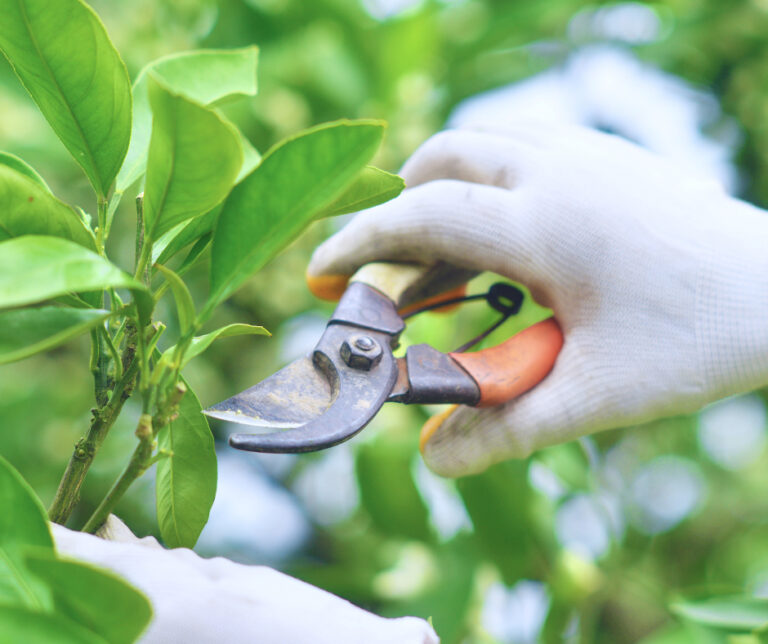Protecting Your Plants: The Value of Professional Plant Health Care
Professional plant health care is a vital part of gardening, landscaping, and agriculture. It involves the use of scientific strategies, techniques, and tools to maintain and enhance the health and well-being of plants. This includes the identification and control of pests and diseases, soil health, nutrient management, and other factors affecting plant growth and development. In this blog post, we will explore in detail what professional plant health care is and why it is so important.
What is Professional Plant Health Care?
Professional plant health care is an approach to plant management that emphasizes the use of science-based techniques to maintain the health and vitality of plants. This approach involves the use of a range of tools and strategies, including integrated pest management, soil analysis, nutrient management, pruning, and other cultural practices.
Professional plant health care is typically performed by certified arborists, horticulturists, and other professionals who have specialized training in plant health care. These professionals have a deep understanding of plant biology, soil science, and pest and disease management, and they use this knowledge to develop customized plans for each client’s unique needs.
Integrated Pest Management
One of the core components of professional plant health care is integrated pest management (IPM). IPM is a proactive approach to pest control that emphasizes prevention and uses a range of strategies to reduce or eliminate pest populations. These strategies may include cultural practices, such as pruning, planting resistant varieties, and maintaining healthy soil, as well as biological controls, such as the use of beneficial insects, and chemical controls, such as the targeted use of pesticides.
The goal of IPM is to minimize pesticide use, which can harm both the environment and human health. By using a combination of strategies, IPM can be highly effective in controlling pests while also promoting plant health and minimizing the risk of pest resistance.
Soil Health
Another important aspect of professional plant health care is soil health. Healthy soil is essential for the growth and development of plants, as it provides the necessary nutrients, water, and oxygen that plants need to thrive. Plant health care professionals will often analyze soil samples to determine the pH, nutrient levels, and other factors that may be affecting plant health.
Based on these analyses, they may recommend a range of soil amendments, such as compost, fertilizer, or lime, to improve soil health and promote plant growth. They may also recommend cultural practices, such as mulching or aeration, to improve soil structure and reduce compaction.
Nutrient Management
In addition to soil health, nutrient management is another important aspect of professional plant health care. Plants require a range of nutrients, including nitrogen, phosphorus, potassium, and others, to grow and develop properly. Professional tree doctors analyze soil samples to determine which nutrients are deficient and develop a customized nutrient management plan to address these deficiencies.
This may involve the use of fertilizers, soil amendments, or other strategies to provide plants with the necessary nutrients. By ensuring that plants have access to the nutrients they need, plant health care professionals can promote healthy growth and development and reduce the risk of nutrient deficiencies and other problems.
Pruning and Other Cultural Practices
Finally, professional plant health care may also involve a range of pruning and other cultural practices. Pruning is an important technique for maintaining the health and appearance of trees and shrubs. By removing dead, diseased, or damaged branches, plant health care professionals can promote healthy growth and reduce the risk of pest infestations and disease problems.
Other cultural practices, such as planting and watering techniques, can also have a significant impact on plant health. By working with a professional plant health care provider, property owners can ensure that these practices are optimized for their specific needs and the needs of their plants.
Conclusion
Professional plant health care is a vital part of gardening, landscaping, and agriculture. By using science-based techniques to maintain and enhance the health and vitality of plants, plant health care professionals can promote healthy growth, reduce the risk of pest and disease problems, and protect the environment and human health. If you are a property owner, consider working with a certified professional to ensure the health and well-being of your plants.
When it comes to professional tree services in Rock Hill, SC, Niwaki Tree Services is a trusted name in the industry. Our team of certified arborists and plant health care specialists are dedicated to providing top-notch services to our clients. From tree pruning and removal to insect and disease management, we use the latest techniques and equipment to ensure the health and safety of your trees and plants. Contact us today to schedule a consultation and let our tree experts in Rock Hill, SC help you achieve a healthy and beautiful landscape. Thank you for considering Niwaki Tree Services for your plant health care needs.






